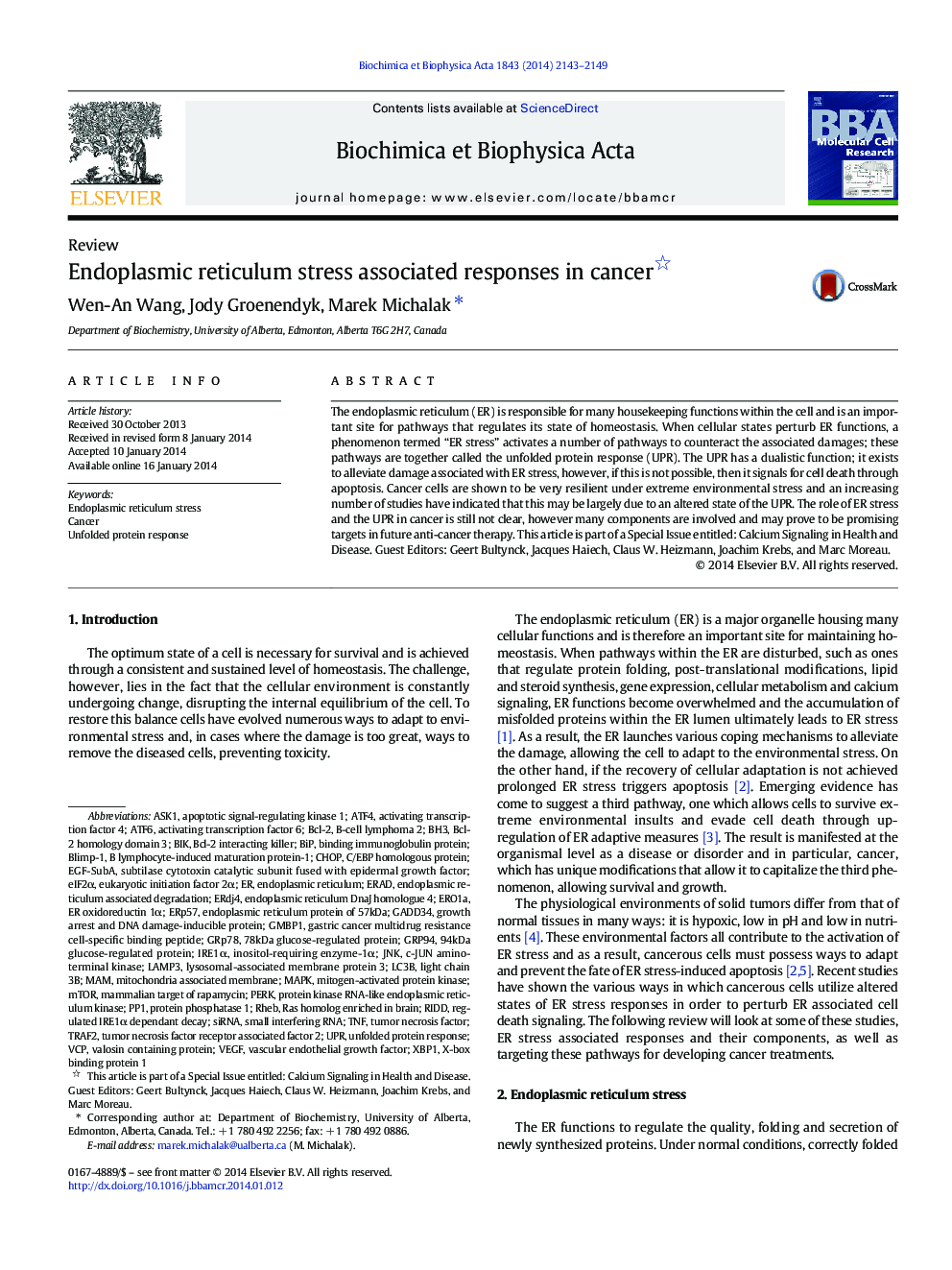| Article ID | Journal | Published Year | Pages | File Type |
|---|---|---|---|---|
| 1950544 | Biochimica et Biophysica Acta (BBA) - Molecular Cell Research | 2014 | 7 Pages |
•Tumor microenvironments can cause severe endoplasmic reticulum (ER) stress.•ER stress activates the unfolded protein response (UPR) as an adaptive response.•Prolonged and severe ER stress leads to apoptosis.•Cancers may have alterations in the UPR to avoid ER stress mediated cell death.
The endoplasmic reticulum (ER) is responsible for many housekeeping functions within the cell and is an important site for pathways that regulates its state of homeostasis. When cellular states perturb ER functions, a phenomenon termed “ER stress” activates a number of pathways to counteract the associated damages; these pathways are together called the unfolded protein response (UPR). The UPR has a dualistic function; it exists to alleviate damage associated with ER stress, however, if this is not possible, then it signals for cell death through apoptosis. Cancer cells are shown to be very resilient under extreme environmental stress and an increasing number of studies have indicated that this may be largely due to an altered state of the UPR. The role of ER stress and the UPR in cancer is still not clear, however many components are involved and may prove to be promising targets in future anti-cancer therapy. This article is part of a Special Issue entitled: Calcium Signaling in Health and Disease. Guest Editors: Geert Bultynck, Jacques Haiech, Claus W. Heizmann, Joachim Krebs, and Marc Moreau.
